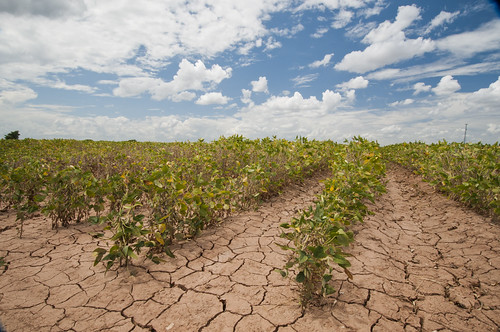
Climate change is already affecting global food production — unequally
Photo by Bob Nichols
Article via sciencedaily.com
Published in PLOS ONE, the University of Minnesota-led study, conducted with researchers from the University of Oxford and the University of Copenhagen, used weather and reported crop data to evaluate the potential impact of observed climate change. The researchers found that:
- observed climate change causes a significant yield variation in the world’s top 10 crops, ranging from a decrease of 13.4 percent for oil palm to an increase of 3.5 percent for soybean, and resulting in an average reduction of approximately one percent (-3.5 X 10e13 kcal/year) of consumable food calories from these top 10 crops;
- impacts of climate change on global food production are mostly negative in Europe, Southern Africa, and Australia, generally positive in Latin America, and mixed in Asia and Northern and Central America;
- half of all food-insecure countries are experiencing decreases in crop production — and so are some affluent industrialized countries in Western Europe;
- contrastingly, recent climate change has increased the yields of certain crops in some areas of the upper Midwest United States.
“There are winners and losers, and some countries that are already food insecure fare worse,” says lead author Deepak Ray of the University of Minnesota’s Institute on the Environment, whose high-resolution global crop statistics databases have also been used to help to identify how global crop production changes over time. These findings indicate which geographical areas and crops are most at risk, making them relevant to those working to achieve the U.N. Sustainable Development Goals of ending hunger and limiting the effects of climate change. Insights like these lead to new questions and crucial next steps.
Continue reading here.

No Comments